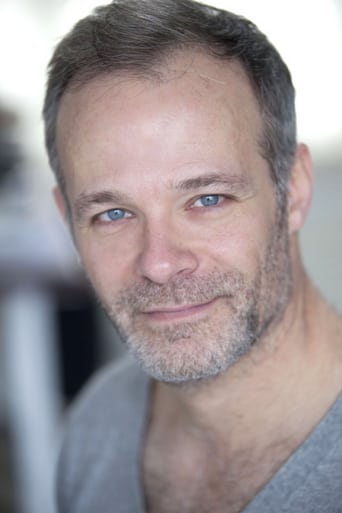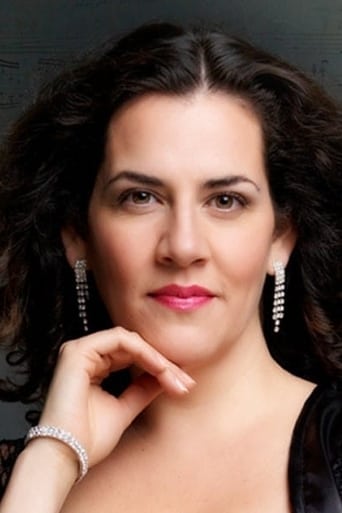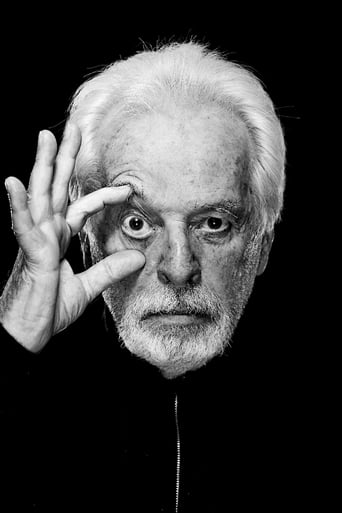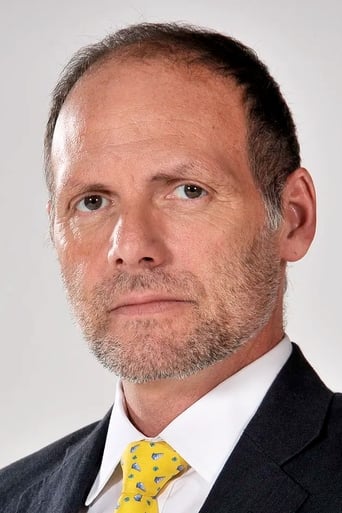Chirphymium
It's entirely possible that sending the audience out feeling lousy was intentional
Lucia Ayala
It's simply great fun, a winsome film and an occasionally over-the-top luxury fantasy that never flags.
maurice yacowar
In his first film in 23 years 86-year-old Alejandro Jodorowsky produces a spectacular surrealist meditation on the nature of humanity. His examination of character operates on two levels. As his father transforms from macho autocrat to sensitivity and vulnerability, Jodorowsky's subject is how to be a proper human. But as that story is played against the background of Chilean politics the same lesson applies to the body politic: how can a government be properly humane. Here Jodorowsky's father looks like the dictator Ortiz — tall, thin, strutting, strong cheekbones, affecting the same moustache — against whom he plots, first a revolt then assassination. At the crucial moment he can't shoot him because his hands are suddenly crippled, a metaphor for the fact he unawares admires and emulates the autocracy his politics opposes. His hands lock because he can't kill the outer embodiment of his self; he has to kill it within. His wife frees him by making him fire at the images of Stalin, Ortiz and himself, that is, purging himself of his autocratic insensitive past self.The father's crippling connects him to the community of mine-damaged cripples whom he earlier disparaged, refused to let his son help and even attacked. His — first psychological, then physical — crippling is imaged in their missing limbs. All are reduced by their ruinous, uncaring society. The society that pragmatically rejects the broken, the disadvantaged, reflects in the father's rejection of his son's sensitivity — that dread homosexuality — and his cruel tests to toughen him. In contrast to the father's skeletal sternness, the mother has an operatic extravagance both in emotion — she sings all her lines as arias — and in her mothering bosom. She strips down exuberantly to cure her son's fear of the darkness with a frolic. His mother heals his father by urinating on him, a brazen parody of baptism and washing away his sins. Earlier the father blew out the radio by urinating on it during Ortiz's public address. The wife's beneficent wash corrects the destructive macho posturing of his. There are other parodies of Christianity in the film. The mother thinks her son is the reincarnation of her father and rejects him when he loses his long blond hair. The father passes through a series of tests and tortures on the road to redemption, resisting the temptation to betray his ideals. At the end the hawking dwarf outside the family's clothing store turns water into wine — reducing Christ's miracle to a parlour trick. When most in need the father is rejected by the film's one priest, a callous unchristian sort. The ranting theosophist may seem a salutary alternative to the various churches of greed and power — until he shows his own cruelty in forcing the young hero to fight his dead friend's twin brother in a bar. No religion is valid if it countenances human cruelty. That's why Jodorowsky's "reality" is not fixed, hard and cold, but a "dance," inviting openness, spontaneity, partnering and joy.Jodorowsky pere is Jewish — and constantly insulted as such — but shows no sign of faith or observance. His conversion from cruel tyrant to sensitivity and forgiveness evokes the change from the Old Testament God to the New. That applies equally to the concept of what kind of person and what kind of government one should be. Obviously this is a very personal film. Jodorowsky himself plays his adult self and his son Brontis plays Alejandro's father. Its true signature is the brilliant invention in imagery, music and event.
yotamatsuo-906-893739
the night before going to see this film, I had been rewatching "Pan's Labyrinth" and therefore could not help comparing between the two male leads. I am referring to the evil officer character in "Pan," compared to Jaime in this film. Both are very much representations of a paternally structured society, where men are not allowed to show weakness, and everything is about "who is boss" and one's actions are determined by the fear of punishment and the fear of losing power. in "Pan" the evil officer punishes everything that is intuitive or seemingly irrational or superstitious, creating an icy paranoid environment where the little girl has to escape into her imagination. likewise in this film, Jaime punishes anything in his son that is feminine and therefore considered by him to be "weak." notably the first 20minutes were told from the son's point of view, which accentuates Jamie's harsh parenting. then gradually it makes a full switch to Jamie's point of view. an interesting choice, though it did throw me off. I suppose in the Theosophist's view "everything is one" so it would make no difference whether it's the father's story or the son's story, it is all one story which is the human story, something like that.in "Pan" the officer was pure evil right to the end, but Jodorowsky naturally takes a more complex view. as the years pass more is revealed about Jamie who turns out to be more than a two-dimensional brute. he joins underground political movements, puts his life on the line to help the sick, and becomes an undercover assassin. after experiencing a crisis of conscience, he goes through a brief religious phase before returning to his family. the problem is that all of this time, his brain is still running the same operating system of a fear- based, authoritarian hierarchical mindset. even the seemingly noble deeds are motivated by fear not love, that is fear of losing face or being seen as a coward.to an extent it is true that "fear is a motivator." Jodorowski makes this point repeatedly through his portrayals of anti-semitism. the Jewish fear of being ostracized drives them to achieve more and prove their worth to society. however this fear-based way of thinking ultimately leads Jamie to an unthinkable place, betraying his comrade in pursuit of vain glory and killing a man in cold blood. this ties into another difficulty with the film, it is supposedly a comedy but the main character is entirely unlikable, he is introduced as a monstrous father and subsequently it is hard to care what happens to him. but if one can let go of issues like this, the film turns out to be fairly rewarding.in the end Jamie cures his own paralysis by symbolically destroying the images of his political idols. by recognizing his own potential for evil, he gains a new perspective.Jodorowsky seems to be saying that it doesn't matter which political party you join, or whether you happen to be on the winning side or if you're the guy with the big gun or the little guy begging for crumbs. we are all part of a very sick society that has become outwardly sophisticated but nevertheless governed by the same brain circuits as the great apes. really it is not that one person is more evil than the other, as we are all ruled by the same animal circuits if we happened to be in Stalin's situation we are likely to do the same thing. that may be an extreme way of putting it, but I believe he has a point.
jn626262
As a fan of Jodorowsky's earlier films, I was very interested in how the new one would compare. La Danza de la Realidad follows Alejandro Jodorowsky's childhood in Tocopilla, Chile. His tyrannical father is played by his son Brontis, previously seen as El Topo's son. The film begins focusing on Jodorowsky as a kid, then shifts more toward his father. Alejandro Jodorowsky also appears on screen, as himself. A scene I particularly enjoyed was the meeting of the local communists. The digital photography is also very well done. I won't give anything away; you should see it for yourself. This film is one of his best. If you like Jodorowsky, go see it.
luke-eberhardt
I could pretty much say that for every other film from Alejandro Jodorowsky. Lucky enough I was able to familiarize myself with his previous films; 'El Topo' and 'The Holy Mountain' a month ago, before hearing his latest 'The Dance of Reality' will play at the Melbourne Internation Film Festival; direct from its Cannes premiere.I can't really recommend this to you if you aren't very familiar with Jodorowsky's other films. He always if not Often plays on Allegories; El Topo appears as an allegorical Western playing on a very mystic and strange backdrop full of religious ideals and encounters, while also exploring how much of this comes from human deeds on a spiritual journey to enlightenment. I'd gladly revisit that film again and consider it his "Masterpiece". 'The Holy Mountain' on the other hand has just as much of a cult following as 'El Topo' does, Instead That film focuses on spiritual conflict and pilgrimage to attain a spiritual level greater than man above the solar system's landscape. Both films have even been noted to be part of the ever wondrous hippie generation. Jodorowsky truly is an icon for what he achieved expressing within his films; very Avent-Garde spiritual understanding within our mind's visions giving greater tones to such surrealist imagery of psychedelia. Sure enough his films aren't for everyone and must be approached with a curious and Adult mind to fully understand.'The Dance of Reality' marks Jodorowsky's first film in almost 23 years. Its an autobiographical film based upon the Jodorowsky's memoir of he name. The Film focuses on his upbringing in Chile, Young Alejandro (Jeremías Herskovits) is a curious boy trying to understand the values of life and childhood. His Father Jaime (Brontis Jodorowsky) is very strict, arrogant and abusive due to his obsession with communism and Stalin, he teaches the young Alejandro the meaning of manhood growing up and the lessons in life. His Mother; Sara (Pamela Flores, all her dialogue is sung) is more gracious and loving towards both Alejandro and Jaime. The plot seems to focus on both father and son character development. Alajandro is growing up to becoming a fine young lad with good moral values taught by both his parents. Jaime on the Other hand thinks he can do anything within his power and might but eventually ends losing is all not learning his lesson from such reckless deeds, eventually trying get out the hard way. The 84 year old 'Jodorowsky' himself, serves as the film's narrator or spiritual guidance to his younger self.In some way 'Dance of Reality' explores Jodorowsky's allegory of life and childhood as well as his old man's mistakes. You could say most of these themes have already been explored when looking back at 'El Topo', Although that film was more a metaphor for Jodorowsky's upbringing. 'Dance of Reality' directly takes Jodorowsky's native Chile setting and brings it up close examining his childhood and early spiritual understanding as well as what type of person his father was.This film mainly has many of the similar motifs and symbolism found within Jodorowsky's other films (e.g. limbless or missing limbed humans and visible genitalia, Why? Cause he can!). Psychedelia and surreal imagery play a significant parts within the films substance. The narrative is easy to understand from a direct perspective rather than an exercise on the weird and wonderful. The film for one is fascinating, very engaging and self centered. The character development of Alajandro and Jaime is so drawn in; its hard to distinguish the line of fantasy and reality. Supporting and minor characters also play memorable roles in this film. I guess it was worth the wait for Jodorowsky's first release in years.I can see this film being praised and divided by critics and audiences alike. Jodorowsky shows things within his films that even the most repentant or squeamish mind may find uncomfortable to watch. If given the right audience were to view this film they won't be disappointed. This film is Unlike anything I've ever seen; it has left me Awe Struck, amazed disturbed at the same time. One Thing for certain is Alejandro Jodorowsky is like no other film maker thats ever lived





